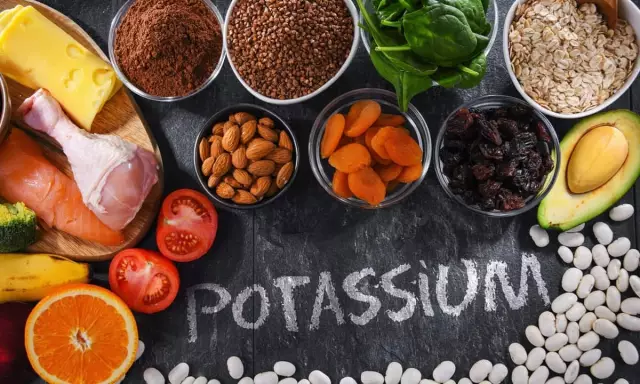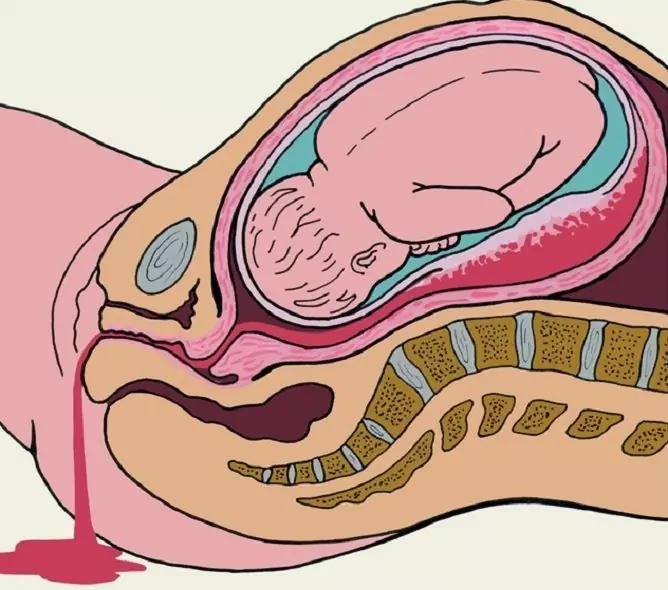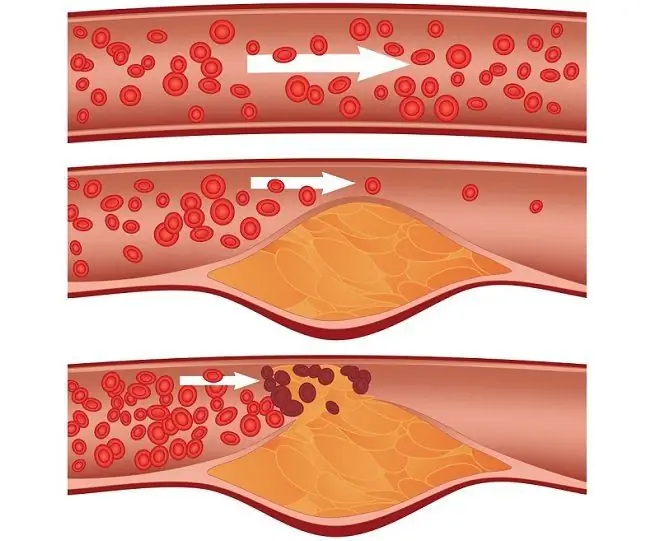- Author Rachel Wainwright wainwright@abchealthonline.com.
- Public 2023-12-15 07:39.
- Last modified 2025-11-02 20:14.
Hypokalemia

The human body is a very complex system that works due to the harmonious balance and interaction of many different substances. A lack or excess of even one substance leads to a number of serious disorders.
Normally, the concentration of potassium in human blood plasma ranges from 3.5 to 5.5 mmol / l. If the content of this substance decreases below the lower limit of the norm, then a pathological condition called hypokalemia occurs. With it, serious problems arise in the work of almost all organs and systems of the human body.
Hypokalemia: causes
The main reasons leading to the development of hypokalemia are:
- Significant excretion of potassium from the body. It is observed with vomiting, hyperglycemia, diarrhea, hyperaldosteronism, metabolic alkalosis, kidney disease, and taking certain diuretic drugs. Excessive loss of potassium is the main cause of hypokalemia.
- Insufficient intake of this element into the body with food. This cause of hypokalemia can occur in people on very strict diets or fasting. Also, hypokalemia often develops in people with a tendency to geophagy (eating clay). In this case, the iron present in the clay binds with potassium to form an insoluble complex. As a result, potassium cannot be absorbed from the intestines and is not absorbed by the body.
- Significant intake of potassium from the intercellular fluid into the cells. Such a movement of potassium can be observed with the introduction of large doses of insulin, after the abuse of alcoholic beverages, with an excess of catecholamines, as well as with an overdose of certain vitamins, in particular folic acid.
Hypokalemia: symptoms
A deficiency of potassium in the body leads to the development of general weakness, rapid fatigue. In addition, muscle weakness of the lower extremities develops, and cramps often occur in them. With a decrease in the concentration of potassium in the blood serum of less than 3.0 mmol / l, other clinical symptoms of hypokalemia appear:
- Various neurological disorders (paresthesias, skin numbness, etc.);
- Mental disorders (apathy, irritability, lethargy);
- Heart rhythm disorders. Lack of potassium increases the excitability of the myocardium, which can lead to ventricular extrasystoles and even ventricular fibrillation. Hypokalemia is especially dangerous for people receiving therapy with cardiac glycosides. Even a small potassium deficiency in them can cause sudden severe arrhythmias, leading to death.
- In severe cases, ascending paralysis may develop, occurring with damage to the intercostal muscles and the diaphragm. If it occurs, the patient must be transferred to apparatus breathing.
Other symptoms of hypokalemia are severe nausea and vomiting due to dysfunction of the gastrointestinal tract. In this case, vomiting increases the loss of potassium, which, in turn, further aggravates the symptoms of hypokalemia. In very rare cases, severe potassium deficiency can cause the development of dynamic intestinal obstruction.
Hypokalemia: Treatment
When the patient has the first symptoms of hypokalemia, it is necessary to find out the cause of the development of this condition and eliminate it.

To replenish the potassium reserves in the body, drugs are used, which include this substance. With a slight severity of hypokalemia, patients are usually prescribed Panangin or Asparkam tablets. In more severe cases of hypokalemia, intravenous administration of potassium chloride, potassium citrate or potassium bicarbonate is used.
However, if the reason for the development of hypokalemia is a violation of the redistribution of potassium between cells and the intercellular environment, then intravenous administration of potassium preparations is categorically contraindicated!
Treatment for hypokalemia caused by increased potassium loss begins with treating the underlying disorder that caused the condition.
Prevention of hypokalemia development
In order to prevent the occurrence of potassium deficiency, you need to include in your diet foods rich in this chemical element:
- Dried fruits;
- Bananas;
- Potatoes (better baked);
- Cabbage;
- Spinach;
- Salad;
- Nuts (peanuts, almonds, pine nuts, or walnuts).
Correct and rational nutrition allows the human body to receive all the substances necessary for its normal life from food, which avoids the development of hypokalemia.
YouTube video related to the article:
The information is generalized and provided for informational purposes only. At the first sign of illness, see your doctor. Self-medication is hazardous to health!






